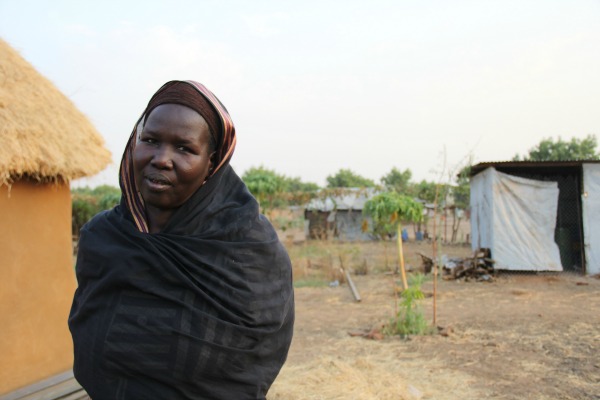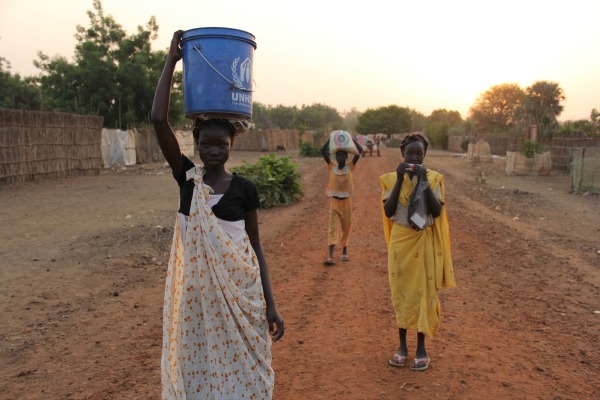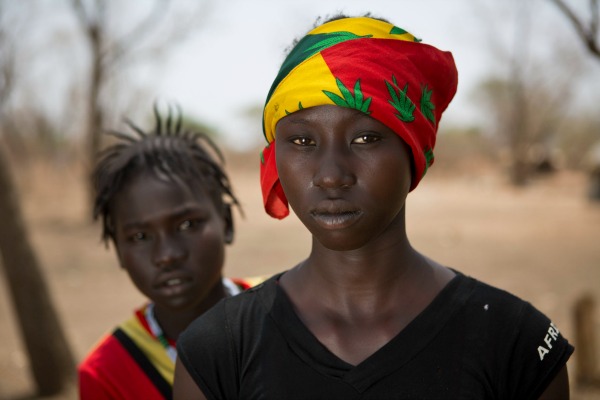
Andrew Ash/Jesuit Refugee Service
The Jesuit Refugee Service is deeply concerned at the fragile state of affairs in South Sudan after fighting re-erupted and killed nearly 300 civilians in the capital Juba in July. JRS, along with other aid agencies, have sent a strongly worded letter to the South Sudan government.
A fragile ceasefire
South Sudan faces a spiralling humanitarian crisis as the recent surge in fighting prevents aid agencies from providing urgent help to millions of people in need. Violence and insecurity continue in Juba and are spreading to other states despite a fragile ceasefire in a country where half the population relies on humanitarian aid, ten aid agencies warned today.
The aid agencies – CARE, International Rescue Committee, Mercy Corps, Oxfam, Christian Aid, Danish Refugee Council, Global Communities, Internews, Jesuit Refugee Service, and Relief International – are calling on the Government of South Sudan and the opposition to fully implement the ceasefire in the capital Juba and throughout the country.
The government and the UN peacekeeping force, UNMISS, must also ensure that humanitarian agencies can operate safely in order to get aid to those who need it.

Andrew Ash/Jesuit Refugee Service
Even before the latest fighting which rocked South Sudan on 7 July, on the eve of the fifth anniversary of independence, 4.8 million people did not have enough to eat and 2.5 million people had fled their homes. The fighting in Juba left at least 300 dead and forced tens of thousands to flee their homes, leaving many more people without enough food, water or shelter.
“Once again, we risk failing the people of South Sudan at a time when they most need our help. Many aid agencies have had to suspend or limit life-saving work due to the continuing fighting and insecurity, and it is the most vulnerable people who are paying the price. The international community must redouble its efforts to find a solution to this crisis – nothing will protect civilians like a peace that is fully implemented. The status quo is simply not enough,” said Kate Phillips-Barrasso, Senior Director of Policy and Advocacy at the International Rescue Committee.
Big country with only 200km of paved road
Because of the insecurity, many agencies had to temporarily reduce their personnel to essential staff only. Warehouses of food, water and life-saving materials have been looted even after the ceasefire declaration. In a country that has only 200km of paved road, ongoing fighting and restrictions on internal flights have meant that agencies cannot travel freely to deliver help, and cannot restock their bases across the country with basic supplies needed to support operations and materials needed for humanitarian projects.
The violence has also meant that banks are not fully operational making it difficult to transfer cash to pay staff and purchase goods, and many suppliers have closed their operations, limiting the procurement of essential supplies.
“If security conditions deteriorate further, providing aid will become logistically impossible. Humanitarian aid has probably already prevented famine in hard-to-reach parts of South Sudan – if aid agencies cannot operate fully the consequences could be catastrophic,” said Zlatko Gegic, South Sudan Country Director at Oxfam.

Andrew Ash/Jesuit Refugee Service
UNMISS must protect civilians and humanitarian personnel
Aid organisations are calling on the UN Security Council to ensure the performance of UNMISS is improved in order to protect civilians and ensure humanitarian organisations can work freely and safely across the country. The whole international community and senior UN officials also have a role to play in ensuring that the government provides access to aid agencies to all people in need.
“The inability of UNMISS to protect civilians threatens to undermine any attempts at safety and security in the country and makes it impossible for humanitarian agencies to provide the help that is so urgently needed. UNMISS must fulfil its mandate to protect civilians and humanitarian personnel and facilitate humanitarian assistance,” said Frederick McCray, South Sudan Country Director at CARE.
“Ultimately South Sudan needs a lasting peace. All stake-holders must work to promote peace, non-violent conflict resolution, and tolerance during these highly volatile times. We urge both sides to respect the ceasefire and work together to find a sustainable solution. The people of South Sudan have suffered too much and too long,” said Deepmala Mahla, South Sudan Country Director at Mercy Corps.
Signatories:
• CARE
• Christian Aid
• Danish Refugee Council
• Global Communities
• International Rescue Committee
• Internews
• Jesuit Refugee Service
• Mercy Corps
• Oxfam
• Relief International
For more information and to arrange interviews contact:
Angela Wells, JRS Eastern Africa Communications Officer, [email protected], +254 715 33 2035
Author: Eastern Africa Headlines, JRS, Juba, South Sudan, 28 July, 2016

